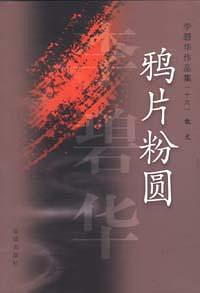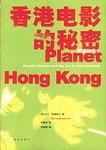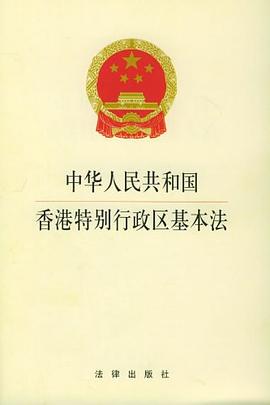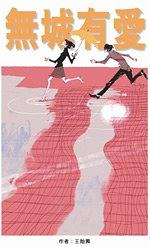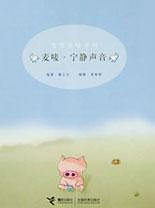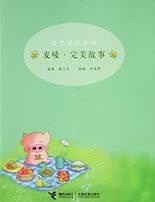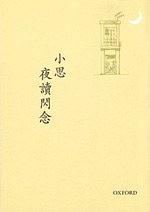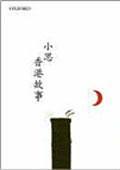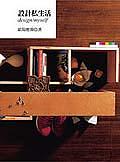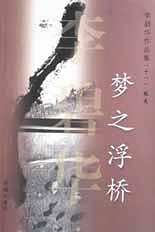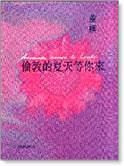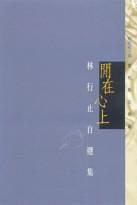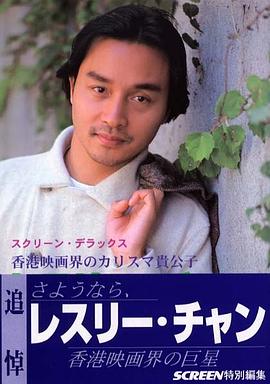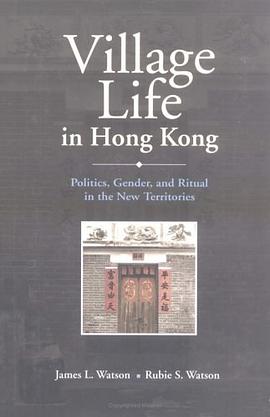
Village Life in Hong Kong pdf epub mobi txt 电子书 下载 2026
- 香港
- 人類學
- HK
- 人类学
- Anthropology
- 社会学与人类学
- 宗教研究
- 宗教与巫术
- Hong Kong
- Village Life
- Culture
- Society
- Tradition
- Daily Life
- Local History
- Community
- Geography
- Lifestyle

具体描述
Village Life in Hong Kong constitutes a unique ethnographic record of a cultural system teetering on the brink of transition. Living and working in the New Territories during the 1960s-1970s, the Watsons explored the cultural traditions of the Cantonese villagers who first settled in South China's Pearl River Delta primarily during the Tang and Song dynasties.
Two villages are featured prominently: San Tin and Ha Tsuen, homes of the Man and Teng lineages, single-surname communities that once dominated rural politics in South China. In the '60s and '70s, village life revolved around the performance of expensive and time-consuming rituals associated with birth, marriage, and ancestor worship. Geomancy (fengshui) was a universally accepted system of belief linking the living to the dead, while men and women lived in separate social worlds that were closed to members of the opposite sex. Working as a team, the authors were able to document both sides of this gender divide.
Many of the rituals and social activities described in this book are no longer performed in the New Territories, or in adjacent regions of Guangdong province, and the physical landscape has also changed dramatically in the wake of the "New Town" development of the 1980s-1990s. Nonetheless, indigenous villagers of the New Territories still constitute a vibrant, recognizable minority in Hong Kong's rapidly expanding population.
"This is an extraordinary volume that deserves attention and appreciation. It summarizes the achievements of two world class scholars. . . . Their passionate interest in local lifeways and their devotion to the communities studied stand in sharp contrast to a new generation of ethnographies that stresses global fluidity. . . . With sophistication and sensitivity, James and Rubie Watson have highlighted analytical issues and historical evidence that mark a significant phase in the field of Chinese Anthropology."
──Helen F. Siu
Professor of Anthropology, Yale University
". . . [E]ach author goes considerably beyond village confines and deals with fundamental aspects of Chinese culture and society, in classic articles such as those concerned with naming practices or the connection between belief and ritual. Thus this book's articles are essential reading not only for understanding village society in the New Territories, but also for appreciation of the larger cultural and historical forces that have importantly shaped it."
──Myron L. Cohen
Professor of Anthropology, Columbia University
"James and Rubie Watson are exceptionally attuned to unconventional and sometimes sensitive research topics. Among the many challenging problems they analyze are class differences within lineages, the equalizing function of a lineage banquet style that violates all norms of formal dining, women's names, and ways of managing the terrifying presence of death pollution. Their analysis of such diverse topics is not grounded in any one theoretical model but, instead, is situated in a rich comparative perspective."
──Elizabeth Lominska Johnson
Curator Emerita and Research Fellow
University of British Columbia Museum of Anthropology
reviewed in American Anthropologist
"In the Preface to this rich collection of essays . . . James and Rubie Watson note that some of the villages discussed have "disappeared from the face of the earth" and that the essays "constitute a partial record of a social system that no longer exists." Nevertheless, the eighteen essays gathered here — culled from their scholarly production of several decades and based on fieldwork in Hong Kong's New Territories from the late 1960s and 1970s — should be required reading for anyone in the China field."
──Ellen Oxfeld, Middlebury College
reviewed in The China Journal
作者简介
James L. Watson is Fairbank Professor of Chinese Society and Professor of Anthropology at Harvard University. Rubie S. Watson is Howells Director, Peabody Museum of Archaeology and Ethnology, Harvard University. The Watsons have conducted ethnographic research in South China (Hong Kong, Guangdong, and Jiangxi) since the late 1960s
目录信息
读后感
在2003年前后,因为拍《三元里》,加上长住广州,有很长一段时间紧追珠三角的历史研究。为了找关于疍民的资料,我在2004年从网上读到了萧凤霞(Helen Siu)和刘志伟合写的《宗族、市场、盗寇与疍民——明以后珠江三角洲的族群与社会》一文(发表于《中国社会经济史研究》2004年第...
评分在2003年前后,因为拍《三元里》,加上长住广州,有很长一段时间紧追珠三角的历史研究。为了找关于疍民的资料,我在2004年从网上读到了萧凤霞(Helen Siu)和刘志伟合写的《宗族、市场、盗寇与疍民——明以后珠江三角洲的族群与社会》一文(发表于《中国社会经济史研究》2004年第...
评分在2003年前后,因为拍《三元里》,加上长住广州,有很长一段时间紧追珠三角的历史研究。为了找关于疍民的资料,我在2004年从网上读到了萧凤霞(Helen Siu)和刘志伟合写的《宗族、市场、盗寇与疍民——明以后珠江三角洲的族群与社会》一文(发表于《中国社会经济史研究》2004年第...
评分在2003年前后,因为拍《三元里》,加上长住广州,有很长一段时间紧追珠三角的历史研究。为了找关于疍民的资料,我在2004年从网上读到了萧凤霞(Helen Siu)和刘志伟合写的《宗族、市场、盗寇与疍民——明以后珠江三角洲的族群与社会》一文(发表于《中国社会经济史研究》2004年第...
评分在2003年前后,因为拍《三元里》,加上长住广州,有很长一段时间紧追珠三角的历史研究。为了找关于疍民的资料,我在2004年从网上读到了萧凤霞(Helen Siu)和刘志伟合写的《宗族、市场、盗寇与疍民——明以后珠江三角洲的族群与社会》一文(发表于《中国社会经济史研究》2004年第...
用户评价
翻开这本书的篇章,仿佛经历了一场穿越时空的旅行,从鳞次栉比的摩天大楼的阴影下,一脚踏入了时间仿佛慢下来的村落。作者的笔触极其富有画面感,他/她似乎对光线、气味和声音都有着超乎寻常的敏感度。我可以清晰地想象出清晨海雾笼罩下的渔港的咸湿气息,以及午后在榕树下听到的粤语闲谈的慵懒节奏。这本书的叙事结构非常巧妙,没有采用僵硬的编年史方式,而是通过一个个鲜活的“人物志”将不同的村落串联起来,每一个人物都是一个时代的缩影。无论是那位坚持使用传统方式捕鱼的老渔民,还是热衷于复兴客家菜式的年轻厨师,他们的故事都充满了韧性和对土地的深厚情感。这本书的魅力在于其真诚,它没有美化艰辛,却将生活中的微小喜悦放大,让人感受到生命力在最朴素的环境中也能迸发出惊人的光彩。
评分读罢此书,我的内心久久不能平静,仿佛刚刚经历了一场深刻的心灵洗礼。这本书最打动我的地方,是它所传达的那种“不完美中的和谐”。它没有把乡村生活描绘成一个乌托邦,相反,书中诚实地记录了资源分配的不均、传统观念与现代价值的冲突,甚至是一些邻里间的龃龉。然而,正是在这些真实的褶皱中,我看到了香港精神的另一种体现——那种在夹缝中求生存、在限制中创造可能性的坚韧。作者通过细致入微的观察,展示了村民们如何在外部压力下,通过集体行动和互助网络来维持社区的凝聚力。例如,描述他们如何共同应对台风过后的重建工作,那种超越个人利益的互助精神,在当今这个日益原子化的社会中,显得尤为珍贵和振聋发聩。
评分这本关于香港乡村生活的著作,展现了一种与都市光鲜亮丽截然不同的景象,读来让人仿佛置身于那片宁静而充满烟火气的土地。作者细腻地捕捉了那些被高速发展洪流逐渐淹没的传统社区的脉搏。从对传统农业活动的描绘,到家庭作坊中世代相传的手艺,每一个细节都散发着历史的温度。特别是关于土地和宗族关系的探讨,非常深入,揭示了在现代化进程中,这些根深蒂固的社会结构是如何适应、抵抗与演变的。书中对老一辈居民的访谈记录尤其动人,他们的记忆和口述历史,为我们理解香港历史提供了一个非常重要的、自下而上的视角,远比那些官方的宏大叙事要生动得多。它不是一本简单的田园牧歌式的描绘,而是坦诚地展现了乡村在现代化冲击下面临的困境与挣扎,比如年轻人外流、文化遗产保护的难题,这使得整本书的基调在怀旧中带着一丝现实的沉重感,令人深思。
评分这本书的文笔有一种独特的、近乎诗意的疏离感,它让你保持一定的距离去观察,却又让你无法自拔地沉浸其中。它更像是一部用文字构筑的影像志,每一章都像一个精心剪辑的短片。我特别欣赏作者对“物质文化”的关注,比如那些特有的建筑材料、祭祀用品的纹理、甚至村口石碑上的锈迹,都被赋予了叙事的功能。这种对“物”的关注,间接地讲述了“人”的故事。它成功地挑战了人们对于“香港”的刻板印象,即“快、贵、高”。它提醒我们,在这座亚洲的金融中心背后,依然存在着承载着数百年历史的、充满生命力的有机生态系统。全书的节奏控制得当,张弛有度,让人在阅读时既能感受到历史的厚重,又不乏当代观察的锐利,是一部值得反复品读的佳作。
评分我必须说,这本书的学术价值与人文关怀达到了一个罕见的平衡点。它不仅仅是为普通读者准备的怀旧读物,更对社会学和人类学领域的研究者提供了极具价值的案例分析。作者在处理材料时表现出的严谨性令人印象深刻,清晰地界定了不同时期(如殖民地早期、经济起飞阶段和回归后)乡村社会结构的关键性转折点,并且引用了大量的田野调查数据来支撑其论点。尤其值得称赞的是,书中对于不同族群——客家、围村原居民以及后来的新移民在乡村空间中的互动与权力分配进行了细致的剖析,揭示了社区内部复杂的社会动态。这种兼顾宏大理论框架与微观个体经验的写作手法,使得读者在享受故事性的同时,也能获得扎实的知识增益,它成功地将一个看似边缘化的地理概念,提升到了一个重要的社会议题的高度。
评分人类学伉俪,是多么令人心驰神往的传奇啊。。。
评分关于香港的人类学著作,研究新界族群专用
评分啊 Watson夫妇真是理想伴侣的典范(重点错orz
评分啊 Watson夫妇真是理想伴侣的典范(重点错orz
评分http://t.cn/zj7j1Iv
相关图书
本站所有内容均为互联网搜索引擎提供的公开搜索信息,本站不存储任何数据与内容,任何内容与数据均与本站无关,如有需要请联系相关搜索引擎包括但不限于百度,google,bing,sogou 等
© 2026 book.wenda123.org All Rights Reserved. 图书目录大全 版权所有


